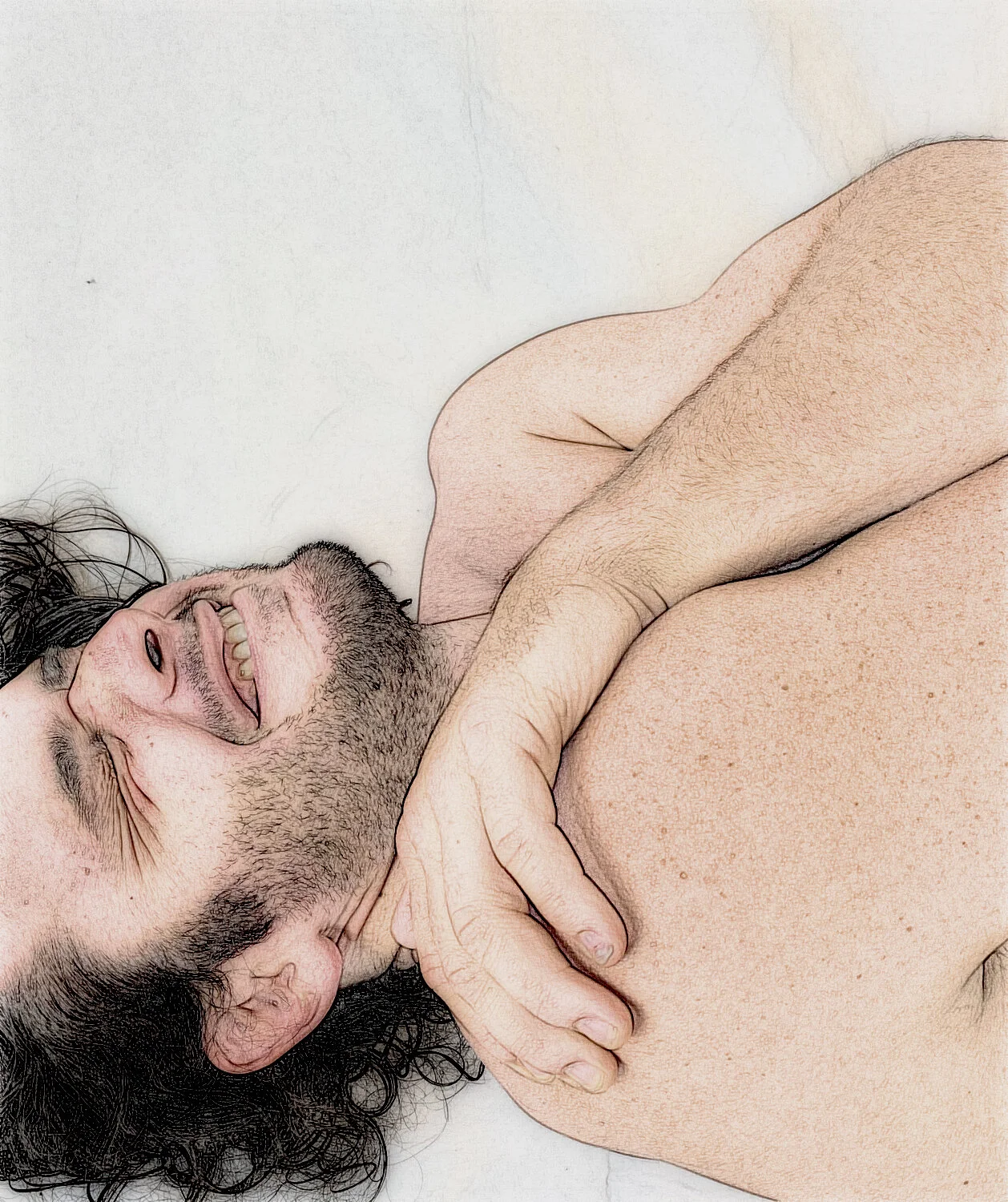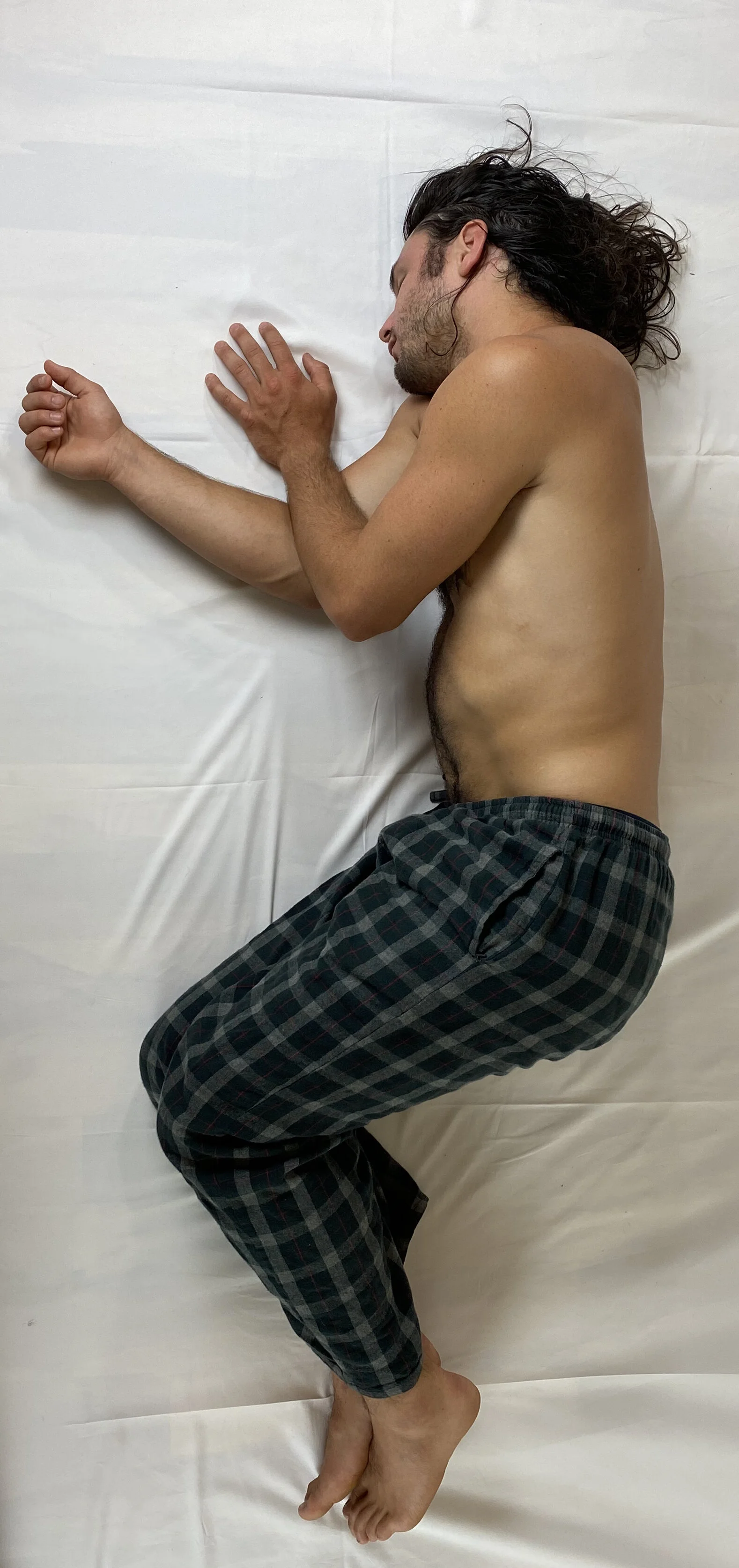
Click here for a complete list of our blogs.
CLICK HERE FOR A COMPLETE LIST OF OUR BLOGS.
Click here for a complete list of our blogs.
Now That's Salient! Why the position you sleep in may matter but really shouldn't. (Part Four: 3 minute read)
During your sleeping life, Have you ever experienced a pain so intense that you were ripped right outa’ your beauty rest? We hear about these events almost every day in our practice. If you have never experienced this, good for you! If you have, you may have felt intense pain, in your knee, shoulder, neck, even your rib cage, as you shifted to another sleeping position. Usually this kind of pain is sharp and transient. And when we say sharp- we mean it can take your breath away. During a nocturnal, short, painful event , you could feel as if you need to freeze in whatever position you are in so that you won’t break! But, frustratingly, you may feel that the very position you have to hold is causing you more pain. You can feel like you’re stuck! Although an event like this can be extremely unpleasant, after the pain quickly subsides the ability to sleep usually returns. But the experience can leave you worried and confused. So we’d like to take a stab (or a more comfortable sounding verb) at explaining why this might happen.
We think nocturnal, short, painful events may have to do with your nervous system’s salient networks. [1] “Salient what,” you say? Our salient networks are groups of neurons that our brain uses to determine what is momentarily relevant. We have an amazing ability to adapt to sensory information that is not important in the moment (are you aware of the hum or buzz of every appliance, machine or device in your environment right now?)
When you sleep, your immediate environment is quieter and darker than it is during your awake-time. Well, for your sake, we hope it is. When we sleep, our brains may be busy solving problems and sorting through “day residue.” [2] The outside world quietly waits, gifting us with pause and opportunity to turn inward. We are not outwardly focused. But a loud, sudden and out of the ordinary night-noise would probably wake us up. Even if that noise were a usual part of the biophony (natural sounds) or anthrophony (man made sounds) of our waking life. The same is true when we experience a sudden painful sensation at night. A little pull or tug from some tight fascia or an overstretched nerve may barely grab our attention during the day. When we are awake, our salient networks may decide we can ignore the sensation while we handle more... well... salient information. But if we are in a quiet state, mechanical sensory input levels fall dramatically. There is the soft bed, the light weight of sheets, just the right amount of “heavy” from a comforter, a supportive pillow. Our nervous system can kinda’ put things on cruise control, sensing all the normal nightly mechanical forces; the movement of breath, the gurgle from a resting gut, the need to gently reposition and “OH MY... my knee hurts like the.... where did that come from?”
So in this case it may not be the sleeping position itself that causes you pain but the unexpected jolt to your nervous system. What is normally “sub-salient” demands our immediate attention and is quickly labeled pain. The solution? Take a deep breath (when you can), don’t panic, gently re-postion (when you can) and return to sleep so that you can finish that dream. In your waking hours spend some time using SMR to unstick and hydrate the problem area. Stretch what seems short. Strengthen what seems weak. If you want some help to sort all that out- call us! This is what we’re good at.
So far we have given three reasons your sleeping position could be causing you pain; three reasons it may be helpful to check our do’s and don’t sleeping position list.
Reason number one: The body hugs the lesion
Reason number two: The process of pain sensitization
Reason number three: Your Salience Network gets a jolt
We’ll look at a couple more reasons your sleeping position matters and then launch into a discussion about more “natural” ways to position ourselves for sleep. Click here to learn more!
[1] Grafton, Scott T. Physical Intelligence: the Science of How the Body and the Mind Guide Each Other through Life. Pantheon Books, 2020.
[2] D2: A Freud Glossary, 2020, ww3.haverford.edu/psychology/ddavis/p109g/fgloss.html.

